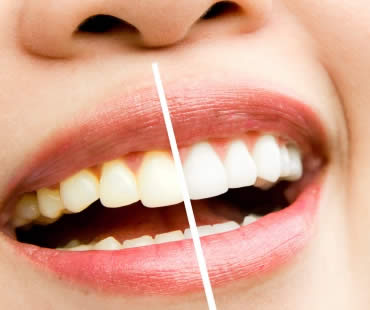
Jul 17, 2025 | Blog, Dental Information, Dental Topics 5
Gum disease, or gingivitis, can cause significant inflammation, pain, and sensitivity, making everyday activities like eating and speaking challenging. Understanding the causes and potential consequences of gum disease is essential for preventing its development or catching it early before it leads to more severe problems.
What Causes Gingivitis?
The primary cause of gingivitis is plaque buildup, but several other factors can contribute to the condition:
- Illnesses: Diseases such as HIV, diabetes, and cancer can weaken the immune system, increasing the risk of gingivitis.
- Hormonal Changes: Pregnancy, menstruation, puberty, and menopause can alter hormone levels, making gums more vulnerable.
- Medications: Some medications, such as those affecting saliva production or promoting abnormal gum tissue growth, can harm oral health.
- Smoking: Tobacco use can impair gum healing and make it harder to recover from gum disease.
- Poor Dental Hygiene: Failing to brush and floss properly, or neglecting oral care, can lead to plaque buildup.
- Genetics: A family history of gum disease can increase your risk.
Symptoms of Gingivitis
Gingivitis can develop without obvious symptoms, even in its later stages. However, some warning signs may include:
- Bleeding, red, or swollen gums
- Chronic bad breath
- Receding gums
- Deep pockets between teeth and gums
- Loose or shifting teeth
- Changes in bite or how teeth fit together
Regular checkups are vital, as a dentist can detect symptoms even before you do.
Treatment for Gingivitis
The treatment approach depends on the stage of gum disease, your response to previous treatments, and your overall health. Treatments range from therapies to control bacterial growth to surgical procedures aimed at restoring gum tissue. In many cases, gingivitis can be managed with regular dental visits and good dental hygiene.
What Happens if Gingivitis Is Left Untreated?
If left untreated, gingivitis can progress to periodontitis, causing permanent damage to the gums and supporting structures. Advanced gum disease has also been linked to serious health issues like stroke, heart disease, rheumatoid arthritis, and complications of diabetes.
Ready to transform your smile? Schedule your appointment today at our Bingham Farms dental office.

Jul 10, 2025 | Blog, Dental Information, Dental Topics 3
Having a teenager can be challenging. They have school work, multiple activities, and attitudes. This hectic time in life can also impact your teen’s dental health. Proper care and good oral hygiene will make sure that your teenager enjoys a lifetime of vibrant smiles.
• Encourage your teen to brush after each meal. Remind your son or daughter about the importance of flossing to remove plaque and promote gum health.
• Explain the consequences of not caring for your teeth, which can include bad breath, stains, and cavities.
• Make sure you stock up on the necessary supplies so that your teen has the right tools on hand. Purchase plenty of fluoride toothpaste, dental floss, and extra toothbrushes.
• Schedule regular checkups with the dentist. These appointments allow the dentist to assess your teen’s oral health and handle any problems right away.
• If your son or daughter has braces, get floss threaders from the orthodontist or buy them at the local drug store. Keep up with appointments for adjustments so that your teen’s treatment stays on track.
• For teens that play contact sports, including soccer, football, or volleyball, ask your dentist or orthodontist about a custom mouth guard. This oral appliance is designed to protect their teeth and mouth from potential injury.
• Limit your teen’s consumption of junk food by having health snacks like vegetables, fruits, and low fat dairy options readily available.
• Model good behavior. Showing that you believe oral health care matters will help your teen take your advice and warnings to heart.
Are dental issues holding you back? Take control of your oral health by booking an appointment with our experienced team at our Bingham Farms dental office.

Jul 3, 2025 | Blog, Dental Topics 3, Implant Dentistry
Dental implants are an option for people who have lost a tooth or teeth due to decay or damage. With implants, an artificial tooth root is placed into your jawbone to provide support for crowns and dentures. When considering implant treatment, you may have some of the following questions and concerns:
- Who is a candidate for dental implants? Implants can be placed in almost anyone after adolescence or when bone growth has completed.
- Is implant surgery painful? No, implant treatment is usually performed under local anesthesia in your dentist’s office.
- How long does it take to place dental implants? Depending on the number of implants placed, the procedure can usually be completed in less than an hour.
- What kind of recovery can I expect after a dental implant procedure? Healing from implant surgery is usually quick and uneventful. Any pain or discomfort should be minimal and easily controlled with anti-inflammatory medication. Most patients can return to normal activity the next day.
- How long will it take before I receive my new teeth? Because the implants need time to fuse to the bone, the entire process can take up to six months. Typically, you will receive some form of temporary teeth during this period. Treatment time varies depending on your treatment needs.
- Is caring for my implants difficult? Caring for your dental implants is the same as caring for your natural teeth. Implants simply require consistent brushing and flossing and regular dental visits for routine cleanings.
- How long will my implants last? When cared for properly, dental implants should last for decades.
- Are dental implants safe? When used in qualified candidates, dental implants are an exceptionally low-risk restoration option.
In general, dental implants have a success rate of up to 98%. With proper care, implants can last a lifetime.
Ready to transform your smile? Schedule your appointment today at our Bingham Farms dental office.

Jun 26, 2025 | Blog, Cosmetic Dentistry, Dental Topics 3
Tetracycline is an antibiotic used to treat infection. While it works to fight certain illnesses, it can have a negative impact on your smile. If tetracycline is taken by pregnant women or by children while their teeth are still forming, the teeth will develop with dark stains. Usually, this medication produces brown or grayish discolorations that may cover all or part of the teeth.
People with tetracycline stains may feel self-conscious about their smiles. Your dentist can evaluate your case and discuss options for creating a gorgeous, new image. Treatments such as teeth whitening or porcelain veneers can remove stains and restore your smile.
In the past, teeth whitening was not a very effective therapy for tetracycline stains on teeth. Because the stains are intrinsic, which means they occur within the tooth, whitening didn’t always produce results. However, repeated chair side laser whitening sessions and deep bleaching products have worked in cases where the staining was not particularly dark.
The most common treatment with tetracycline stains is porcelain veneers. Made from thin shells of dental porcelain, veneers cover your teeth and produce a bright, white smile. Porcelain veneers are durable, stain-resistant, and designed to create naturally looking restorations.
With veneers, your doctor will first take impressions of your teeth to be sent to the dental lab that will handcraft your custom restorations. The dentist will then prepare the teeth for placement. Often, the dentist will place temporary veneers, which will give you a chance to preview your new look. Once the lab sends your permanent veneers to the office, you will need to return for minor adjustments and final placement.
Take the first step towards a confident smile. Contact our Bingham Farms dental office to schedule your consultation!

Jun 19, 2025 | Blog, Dental Topics 3, Family Dentistry
One thing that can make an entire family smile is good oral health. When everyone has healthy teeth and gums, there is more reason to show off those great smiles. Oral health issues can even run in families, so taking care of a problem in one person may help other family members as well by alerting them to the condition. Family dentists can benefit everyone in your household. This type of dentist treats all family members, no matter what their age is. Young children, teens, adults, and seniors are all treated in one dental practice. Family dentistry focuses on taking care of the oral health needs for everyone in the family, and offers a variety of benefits by doing so.
Establishing a healthcare relationship with a family dentist means that everyone goes to the same office for appointments. The dentist and staff get to know each person, and can provide a level of comfort knowing that everyone is receiving the same standard of care. Family dentists understand your needs and those of other family members too.
Family dentists are trained and experienced in providing care for all kinds of issues. This always includes routine dental care like cleanings, fluoride treatments, sealants, and fillings. Some family dentists also perform procedures like implants, veneers, bonding, contouring, root canal treatments, and even orthodontics. You should choose a family dentist who offers services that meet the needs of every family member.
Another thing that family dentists are skilled in is teaching patients the best ways to care for their own oral health. Children may need to be taught how to properly brush and floss, teenagers might need reminders about consistent care or maintenance with braces, and adults often require special attention for good gum health. Seniors face unique challenges related to maintaining their oral health in order to keep their natural teeth. Family dentists understand the needs of patients at each stage of life, and can provide optimum treatment for those specific challenges.
Your smile is one of your most valuable assets and your oral health should not be compromised. Finding a good family dentist is your first step in the right direction.
Do not let another day go by without taking care of your dental needs. Request an appointment now at our Bingham Farms dental office!

Jun 12, 2025 | Blog, Cosmetic Dentistry, Dental Topics 3
Not everyone has the advantage of a perfect smile. A smile makeover can help you transform your look into what you’d like it to be, and it doesn’t have to take a long time. You can walk away from just one appointment with a better smile. Here are some of the fast treatments using non-invasive techniques that are available.
Whitening teeth
If you’re considering making over your smile, one of the quickest and simplest places to start is teeth whitening. In as little as one hour in a professional setting, you can transform your look by brightening your smile more effectively than trying it at home. Whitening products sold for home use are not as strong as professional methods, so it takes a longer period of consistent use to brighten your teeth only a shade or two. Professional whitening uses stronger concentrations of bleaching agents and a special light to hasten the process, and achieves dramatic results.
Removing white spots
Unsightly white spots that you might see on your teeth are signs of demineralization under your tooth enamel. A smile makeover can include using resin infiltration, which is a non-invasive procedure that can effectively treat white spots. You can say goodbye to the spots in as little as thirty minutes of treatment time. Teeth whitening is not advised, as it can make white spots even more noticeable.
Reshaping teeth
Minor flaws like chipped, cracked, or misshapen teeth can be corrected with contouring. Small areas of your teeth can be shaved or tooth-colored resin can be applied to alter the length or shape of teeth. Tooth contouring can take as little as a half hour, and is great for those with healthy teeth that just need slight alterations for appearance purposes.
Repairing chips or gaps
Dental bonding is a simple procedure that hides gaps, chips, stains, or spacing problems. Tooth-colored resin is sculpted onto the tooth to provide a more appealing smile in only about an hour.
Ready to transform your smile? Schedule your appointment today at our Bingham Farms dental office.






